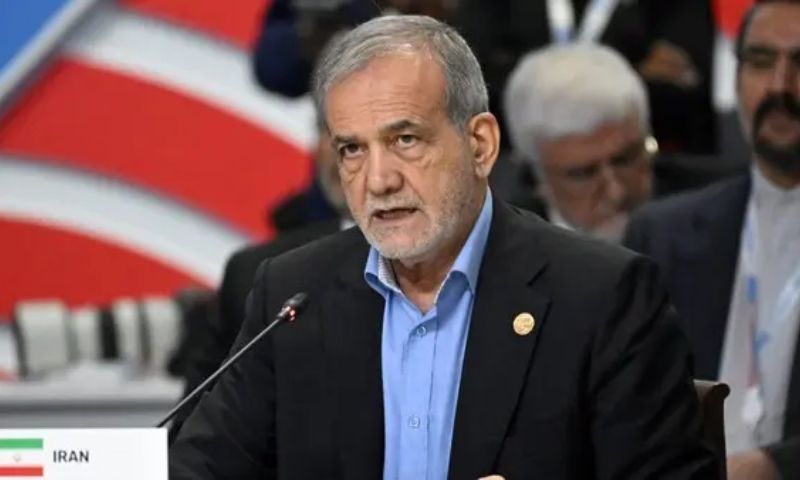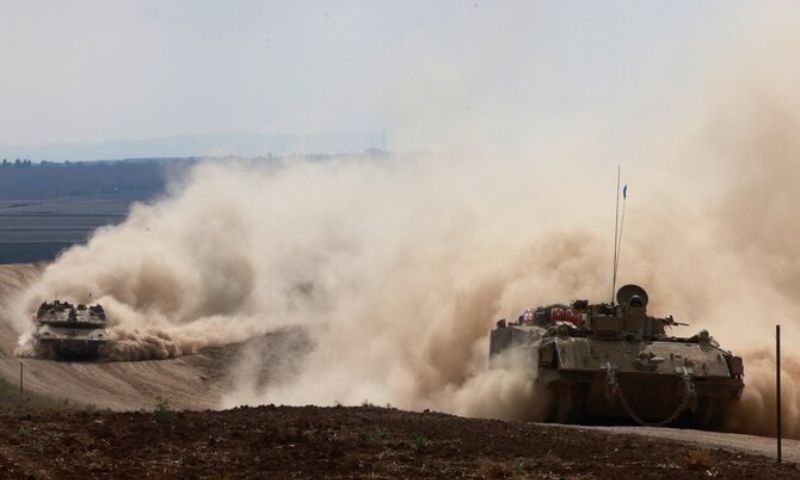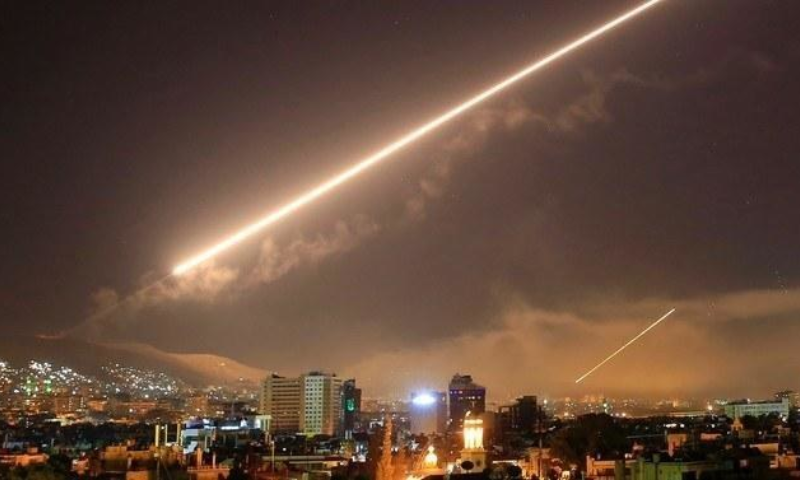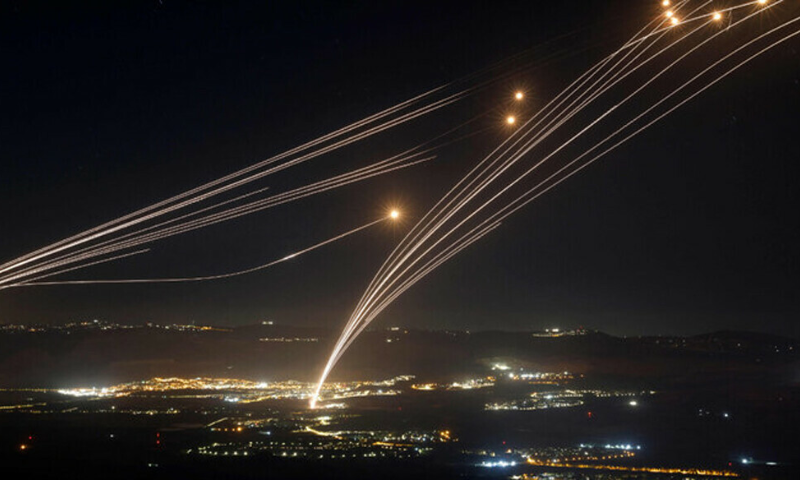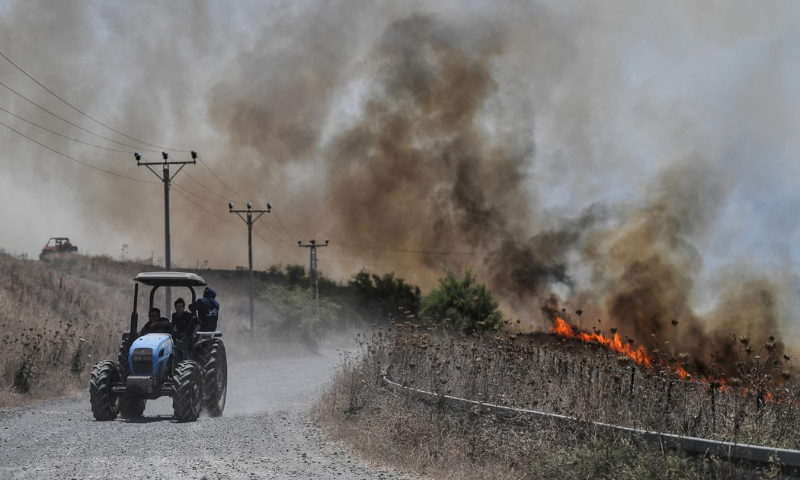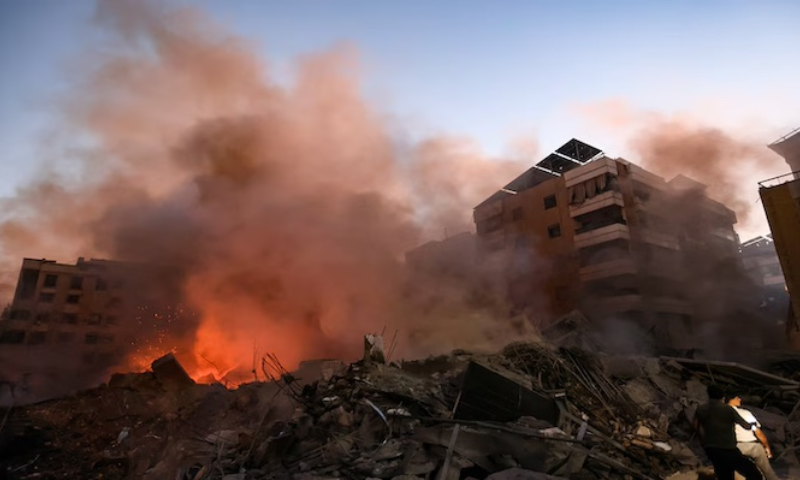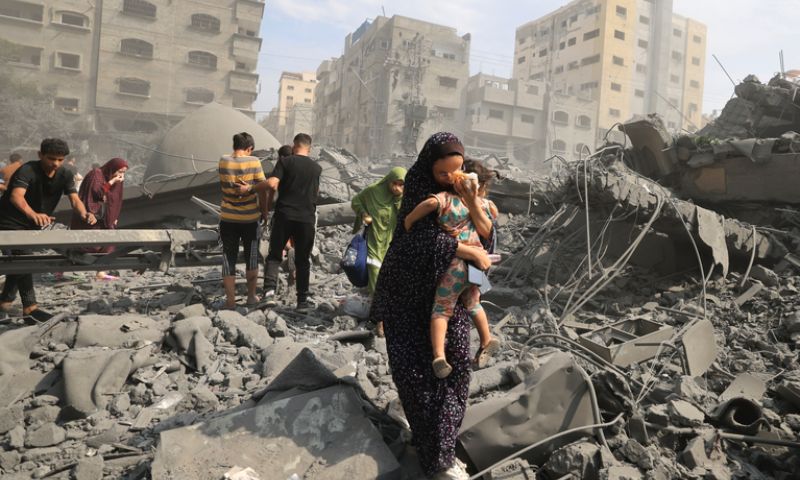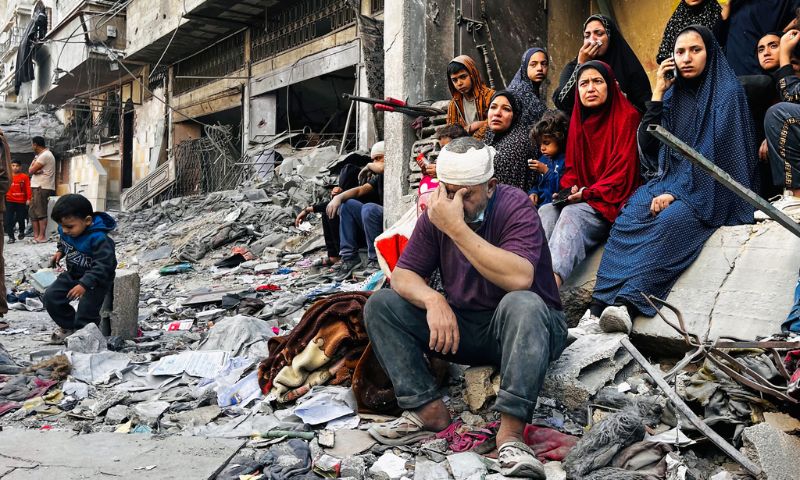TEHRAN: Iran’s President Masoud Pezeshkian said on Sunday that a potential ceasefire between its regional allies and Israel “could affect the intensity” of Tehran’s response to Israel’s recent airstrikes on Iranian military sites.
His remarks came as regional tensions escalated, with both Iran and Israel issuing stern warnings and affirming their readiness to retaliate against perceived aggressions.
“If they [the Israelis] reconsider their behaviour, accept a ceasefire, and stop massacring the oppressed and innocent people of the region, it could affect the intensity and type of our response,” Pezeshkian said, as quoted by Iran’s state news agency IRNA. He said, however, that Iran would “not leave unanswered any aggression against its sovereignty and security.”
On October 26, Israeli warplanes carried out airstrikes on Iranian military installations, which Israel described as retaliation for an earlier missile attack by Iran on October 1.
Israel stated that its counter-attack targeted Iran’s missile production capabilities and defence systems. Iranian sources reported that four Iranian military personnel and one civilian were killed in the strike, along with damage to radar equipment.
In a speech on Saturday, Iran’s supreme leader, Ayatollah Ali Khamenei, reiterated Tehran’s commitment to defending its interests, warning that both the US and Israel “will definitely receive a tooth-breaking response” for any actions against Iran or the “resistance front.” The term refers to a coalition of groups, including Lebanon’s Hezbollah, Yemen’s Houthis, and Hamas in Palestine.
READ ALSO: US Warns Iran Against Attacks on Israel as American B-52 Bombers Deployed in Middle East
The exchange of hostilities between the two nations has intensified in recent weeks. Following Israel’s October 26 strike, Israeli Prime Minister Benjamin Netanyahu stated that Israel’s actions “hit Iran’s defense capabilities and missile production.”
Since then, both nations have maintained a tense readiness, with Israel warning Iran against retaliation and Tehran signaling that its response remains under consideration.
Meanwhile, the United States has warned Iran against launching another missile attack on Israel, adding Washington will not be able to restrain Israel from responding with force if it attacks again, Reuters reported while citing Axios according to a US official and a former Israeli official.
Earlier, Axios reported that Israeli intelligence suggests Iran is preparing to launch an attack on Israel from Iraqi territory in the coming days, possibly before the US presidential election on November 5.
Earlier on Saturday, Iran’s supreme leader Ayatollah Ali Khamenei vowed that Iran would retaliate against Israel for its ongoing military actions. Khamenei warned that any assaults on Iran or its allies would provoke a “tooth-breaking response” from Tehran. He warned the US and Israel of strong response for actions in the region.
Meanwhile, American B-52 Stratofortress bombers have arrived in the Middle East. The US military’s Central Command confirmed that bombers from the 5th Bomb Wing in Minot Air Force Base, North Dakota, have arrived in the region to defend its personnel and interests against potential Iranian aggression.
Pentagon spokesman Major General Pat Ryder said that any provocations from Iran or its allies would be met with a robust American response.
READ ALSO: 47 Palestinians Reportedly Killed in Israeli Strikes in Central Gaza
Meanwhile, ceasefire efforts to halt ongoing conflicts involving Israel, Hamas, and Hezbollah appear to be at a standstill. Hamas has expressed opposition to a temporary truce. Senior spokesperson Sami Abu Zuhri said that current ceasefire proposals fail to address key demands, including a complete Israeli withdrawal from Gaza and the return of displaced Palestinians.
According to Gaza’s health ministry, at least 43,314 Palestinians, mostly women and children, have been killed in Gaza in the ongoing Israeli bombardment campaign. The ministry stated that another 102,019 people have been wounded since October 7, 2023.
US officials have been attempting to negotiate ceasefires in both Gaza and Lebanon ahead of the upcoming presidential election, but progress remains limited. Hamas and other groups maintain that any ceasefire terms must include Israel’s full withdrawal from Gaza.
Israeli Prime Minister Benjamin Netanyahu has reaffirmed that security remains his top priority, signaling that military operations will continue regardless of international pressure.









